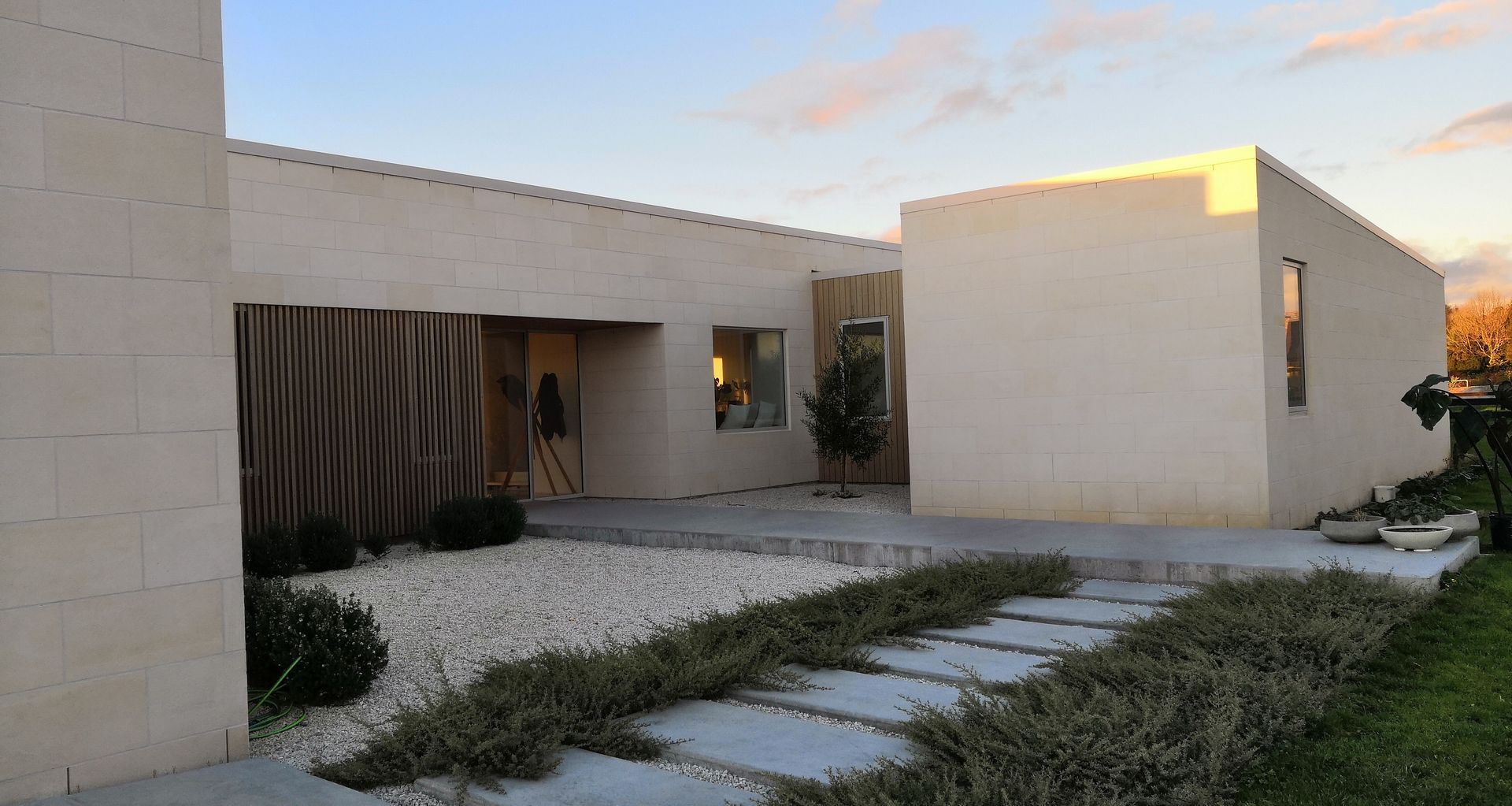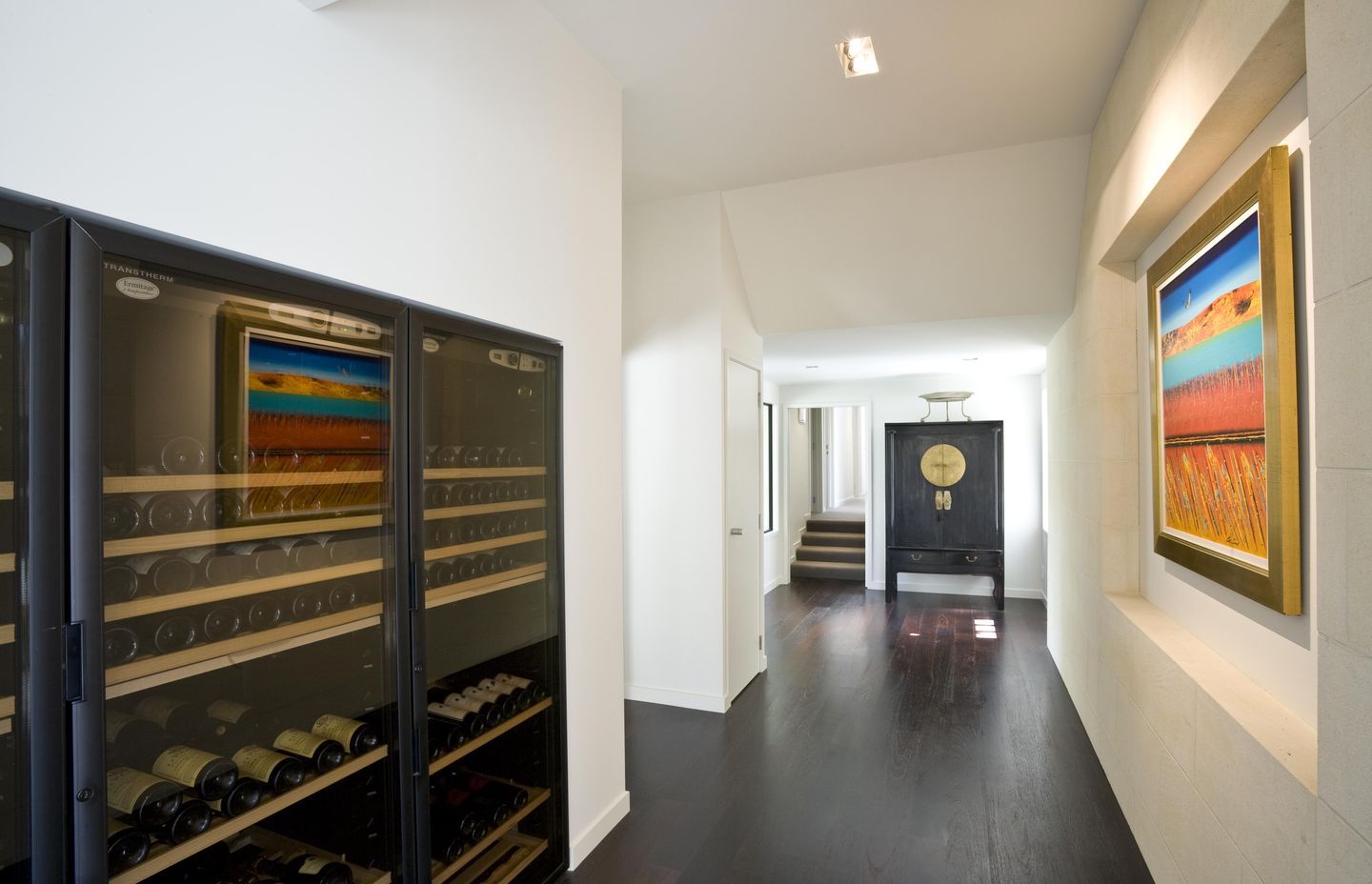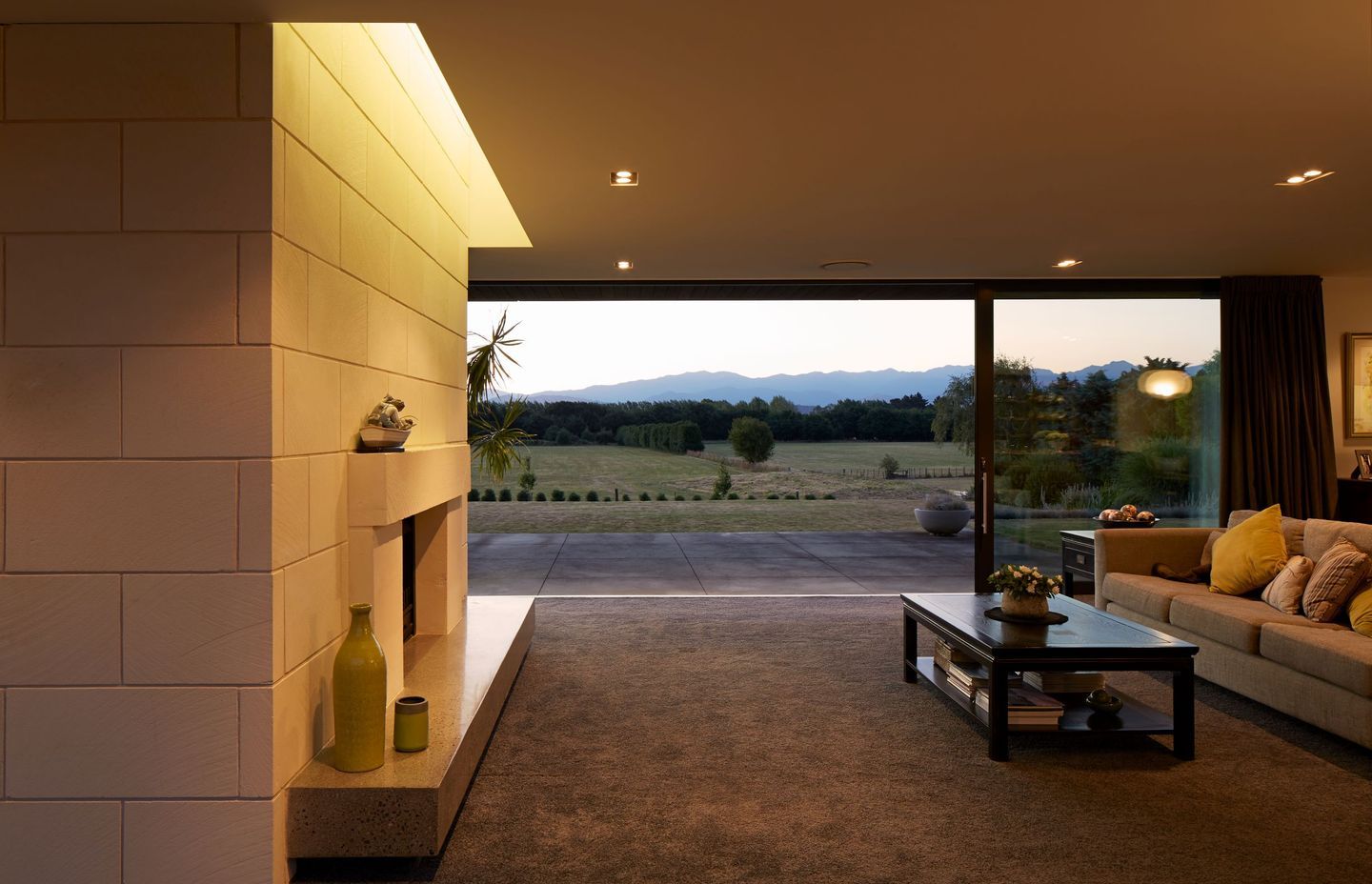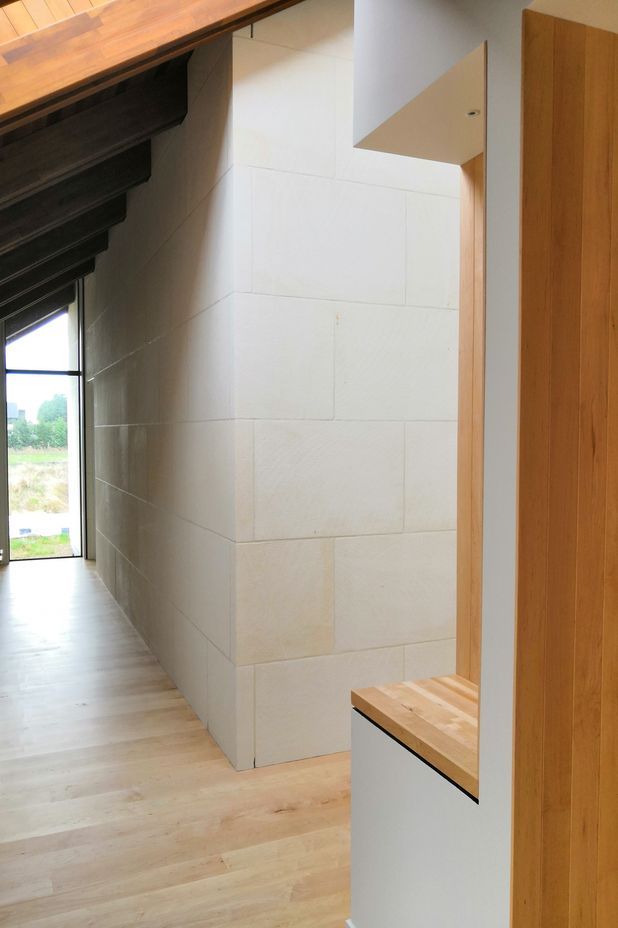Naturally enduring: Ōamaru stone
Written by
16 June 2019
•
4 min read

Ōamaru stone is known for its rich, creamy colouring. Commonly used for external cladding, it’s also an extremely effective interior material, significantly increasing the thermal performance of a house. We spoke to Parkside Quarries about how to bring this natural material indoors.
The beauty of many natural materials is their irregularity, in either texture or colouring. In terms of stone, Ōamaru stone is one of the most sought after construction materials for this very reason. Known for its rich, creamy colouring, its natural colour variation and texture ensures no piece is exactly the same. As external cladding, it makes for unique and memorable buildings.

“Ōamaru stone has a natural beauty, with varying colour tones from creamy white through to autumnal hues. It is a locally sourced, entirely natural limestone, which has proven its longevity as a building material over the past 150 years all across New Zealand. It is uniquely beautiful, has an interesting texture and a varied colour,” Parkside Quarries’ Ramahia Keno says. “It has a genuine versatility and can be either tranquil or dramatic depending on the way it is used.”
However, it is not just the aesthetic appeal of Ōamaru stone that leads architects and designers to specify it so often, and more than ever this natural material is being specified for interiors in homes where passive design and thermal performance are priorities.
“For interiors, Ōamaru stone introduces the irregular beauty of a natural material as well as an effective way of increasing a home’s thermal performance,” Ramahia says.
“Due to its dense makeup It can absorb and redistribute heat effectively. When the right amount is used in strategic areas, the thermal mass of Ōamaru stone can help maintain an ambient internal temperature year round.”
Provided there is ample opportunity for sun and heat to reach the stone, it will absorb the heat and maintain the warmth over the day. When the temperature cools outside, the stone will slowly release heat, increasing the internal temperatures. “Often, Ōamaru stone is strategically placed on walls and fireplace surrounds in the main living areas of a house where the sun can reach it for as much of the day as possible.
“When internal temperatures can be regulated efficiently, heating and cooling bills across the year are less likely to spike as the seasons change. With well thought out design, during the winter months, internal Ōamaru stone absorbs heat during the day and acts as a radiator, slowly releasing it when the sun goes down.”

Ōamaru stone has been used in construction throughout New Zealand’s history, and remains on some of the country’s most well known buildings including the High Court in Auckland and Government House in Wellington. “It is seen as an elegant material; permanent and timeless,” Ramahia says. “Home owners have continued to choose Ōamaru to add value and style. It is a traditional material being used in contemporary residential homes, both internally and externally for its natural aesthetic and thermal qualities. Interior specification of Ōamaru stone allows for the incorporation of what is traditionally a cladding material into the indoors, providing both a connection with nature and thermal performance as well as an elegant sense of timelessness and strength.”
Ōamaru stone is available direct from the quarry split (rough) or sawn faced, and can be cut to any shape and size required, either at the quarry or on the building site by a stonemason. While the standard block sizes are 650mm x 90mm x 290mm, the large quarry blocks can be cut to almost any shape and size required.
To get the most benefit from Ōamaru stone, whether as a cladding or inside the home, it is a good idea to seek advice from an architect or designer.
Based in North Otago, Parkside Quarries supplies Ōamaru stone throughout New Zealand. Make sure you visit Parkside Quarries on ArchiPro here to peruse recent projects that incorporate this unique New Zealand stone.
